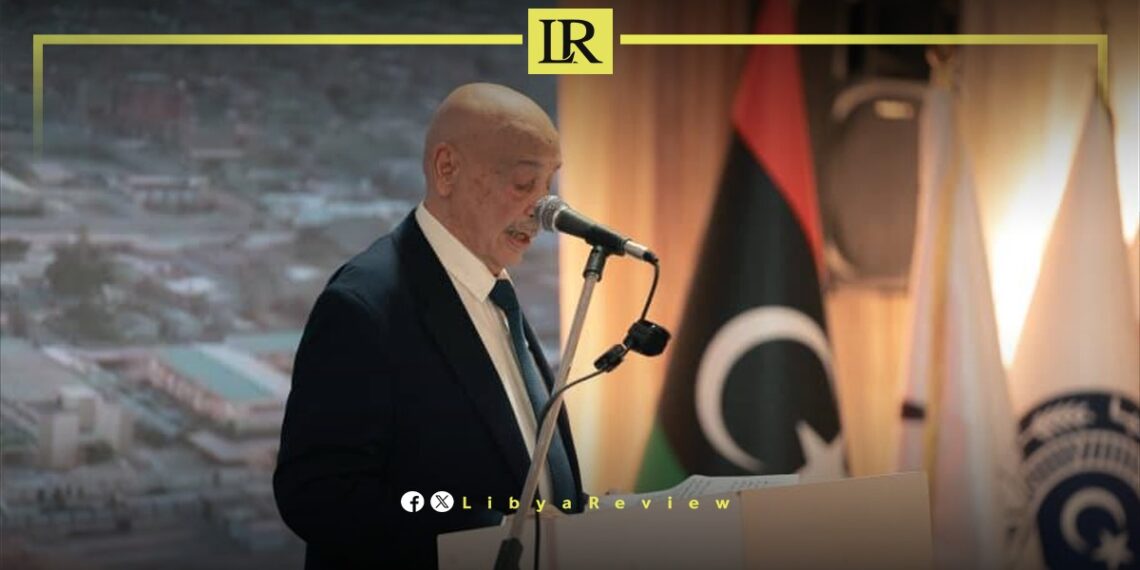On Thursday, Parliament Speaker Ageela Saleh criticised certain media outlets for promoting division and hatred among Libyans.
Saleh accused these channels of engaging in destructive criticism and selective praise, which he claimed undermines national interests and unity.
Meanwhile, the interim Government of National Unity’s Oil Minister, Khalifa Abdel-Sadiq, met with Qatar’s Ambassador to Libya, Khalid Mohammed bin Zayed Al-Duwisari, to discuss cooperation in the energy sector.
Saleh, along with Parliament-designated Prime Minister Osama Hammad and Director-General of the Libyan Reconstruction and Development Fund Belgassim Haftar, inaugurated several public service projects in Ajdabiya.
The event included the participation of military and security leaders, including Major General Khaled Haftar, Chief of Staff of Security Units, and Lieutenant General Osama Al-Darsi, Head of Internal Security.
Addressing the strained relations between himself and Mohammed Takala, Chairman of the High Council of State, Saleh stated, “We are facing a relentless war of malicious criticism and deliberate destruction.” He reminded the audience of the efforts since the 2011 revolution that toppled Muammar Gaddafi, emphasizing the Parliament’s commitment to unity, security, and stability.
Saleh lamented the spread of hate speech and defamation, asserting, “We in the Parliament stand firm. We do not pay attention to their unconstructive criticism or respond to them, as doing so would fulfill their desire to disrupt our progress.” He warned against division and conflicting opinions that threaten national unity.
Highlighting the Parliament’s unwavering principles, Saleh said, “Our presidency, committees, and all members have worked from the outset on the unshakable principles of the country’s unity, sovereignty, and institutional consolidation, supporting our military forces that have defeated terrorism and prevented external interference in our affairs.”
In what some perceived as an implicit rebuke to the High Council of State, Saleh declared, “We are moving towards resolving the crisis, approaching the implementation of election laws, and forming a unified authority to allow the people to freely choose their rulers.”
He praised the efforts of the General Director of the Libyan Development and Reconstruction Fund, Belgassim Haftar, for his tireless work towards reconstruction and stability in Ajdabiya, lauding the government and the fund for their unprecedented achievements within a short period.
Saleh concluded his speech with a tribute to the military leadership, saying, “We extend our greetings and appreciation to our valiant army, its commander Field Marshal Haftar, and his officers and soldiers, who have sacrificed and continue to work for security and stability. Without them, development and stability would not have been possible.”
Libya has been mired in a complex political and security crisis since the fall of Muammar Gaddafi in 2011. The country’s political landscape is fragmented, with multiple factions vying for power and control. The House of Representatives, based in the east, and the High Council of State, located in the west, are two significant political entities with substantial influence over Libya’s future.


